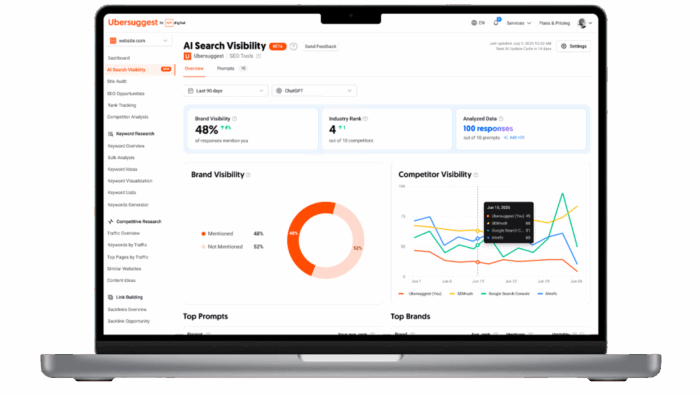Middle East and Africa B2C E-Commerce Market Poised for Rapid Growth
The e-commerce market in the Middle East and Africa (MEA) is currently undergoing a significant change, according to the yStats.com report titled Middle East & Africa B2C E-Commerce Market 2024, shaped by shifting consumer habits and fast technological advancement.

The MEA region is evolving dynamically with the digital marketplaces of South Africa and the cutting-edge digital hubs of Nigeria and Kenya at the forefront of the digital transactions and innovative payment solutions. This article provides in-depth analysis of the ways in which these transformative changes are redefining the e-commerce landscape for B2C in the MEA region, driving unparalleled growth and opportunity. According to recent data, the MENA region's B2C e-commerce market is booming, set to nearly double in value to over EUR 50 billion by 2026. Mobile commerce in the region is also projected to make up 70% of the total online transaction value by 2025, as per FYST. Driven by a youthful population, urbanization, and increasing digital literacy, Saudi Arabia, the UAE, and Egypt lead this growth with robust digital infrastructure and proactive government policies. In the Middle East, nations like Saudi Arabia and the UAE are experiencing a significant increase in online shopping activity as a result of a number of factors, including the wide availability of free shipping offers and the convenience provided by digital payment methods. The quick acceptance of digital wallets and advanced payment gateways by consumers has become the main reason for rapid e-commerce industry growth in both the developed and emerging markets of the region. In addition to that, the smooth incorporation of 5G technology and social commerce platforms has transformed the shopping experience into something that is not only more convenient but also safer and more engaging. According to the World Bank, Saudi Arabia has become a leading example in this regard, with over 60% of adults using mobile phones or internet to make purchases in 2022, a clear demonstration of the speed at which the population is embracing digital channels, driving unprecedented growth in the e-commerce sector. Digital payments have gained significant popularity in the Saudi Arabia market, with a vast number of adults transitioning away from traditional cash payments towards online payment solutions. Leading e-commerce giants like Amazon and Noon Shopping have been at the forefront of the market, catering to a wide range of consumer needs and spearheading the growth of B2C e-commerce. Similarly, the UAE is experiencing steady growth in online shopping, with platforms like Amazon.ae leading the charge. As mobile commerce continues to gain traction, the UAE is poised to experience a significant uptick in B2C e-commerce revenue in the foreseeable future, driving further expansion and innovation in the digital marketplace. Across the continent, countries are rapidly adopting digital payment solutions, with nations like South Africa, Ghana, and Egypt witnessing significant declines in cash transactions. Digital wallets and instant payment systems are gaining traction, fostering a more connected and efficient digital economy. In regions grappling with economic instability, such as Zimbabwe and Sudan, cryptocurrencies offer alternatives, appealing particularly to the tech-savvy younger population. Digital payments in Africa are slowly gaining traction, with countries like Nigeria leading the transition from cash-based transactions. The rapid uptake of digital wallets and instant payment systems has been a decisive factor in transforming the business landscape, leading to greater financial inclusion and operational efficiency. Moreover, the partnership between fintech firms and conventional financial institutions is equipping small and medium-sized enterprises (SMEs) with the digital tools for financial management and transaction processing, paving the way for sustainable growth and economic empowerment in the region. In spite of the fact that Africa's B2C e-commerce has been slowed down by infrastructure inadequacies and regulatory uncertainties, it has been on a rapid growth trajectory with Jumia and Konga as the major players. These companies are using strategic alliances and advanced technology to widen their market reach and raise customer satisfaction to new highs, driving unprecedented expansion in the digital marketplace. The mobile money systems such as M-Pesa in Kenya and Nigeria are acting as the key drivers of the B2C e-commerce growth and are facilitating safe and convenient digital transactions for consumers. The B2C e-commerce market in Kenya was estimated to be worth over USD 3 billion in 2022, showcasing the immense economic importance of digital trade. Nevertheless, the gap in digital infrastructure investment and the need for regulatory reforms to fully realize the transformative potential of e-commerce in Africa still present significant challenges that must be addressed to foster sustainable growth and development. The e-commerce B2C landscape in the MEA region is now undergoing a radical change as consumers' preferences continue to evolve and technology keeps on advancing without interruption. The digital commerce revolution has presented a lot of opportunities to businesses. From the vibrant marketplaces of the Middle East to the rising digital hubs of Africa, businesses are innovating to meet the changing needs of consumers and take advantage of the rapidly emerging market. The region is equipped with strategic partnerships, innovative payment solutions, and an undeterred spirit to improve the customer experience, positioning itself as a dynamic hub for digital commerce innovation and growth. Recognized as the go-to primary destination for ecommerce industry analysis and payments market data, yStats.com is a leading secondary market research and business intelligence firm specializing in global B2B and B2C E-commerce, payments, and fintech trends. Established in 2005 by Yücel Yelken, the firm provides comprehensive market reports and analyses. yStats.com offers indispensable insights, forecasts, and statistical data, primarily through comprehensive market reports. Trusted by multinational enterprises including Fortune 500 corporations, investors, and organizations, its reports have been featured by Forbes, The Wall Street Journal, and the World Economic Forum.  The e-commerce market in the Middle East and Africa (MEA) is currently undergoing a significant change, according to the yStats.com report titled Middle East & Africa B2C E-Commerce Market 2024, shaped by shifting consumer habits and fast technological advancement.
The e-commerce market in the Middle East and Africa (MEA) is currently undergoing a significant change, according to the yStats.com report titled Middle East & Africa B2C E-Commerce Market 2024, shaped by shifting consumer habits and fast technological advancement. MENA's B2C E-Commerce Market to Surge to Over EUR 50 Billion by 2026

Saudi Arabia and the UAE: Pioneers in MENA's E-Commerce
The Rise of Digital Payments in Africa
The Role of M-Pesa and Similar Systems in Driving B2C Growth in Kenya and Nigeria
About yStats.com

 Tfoso
Tfoso 










![How To Turn Around Failing SEO with Cydney D’Costa [VIDEO]](https://www.digitalmarketer.com/wp-content/uploads/2022/05/HOW_TURN_FAILING_SEO-1.png)
![11 Website Page Load Time Statistics You Need [+ How to Increase Conversion Rate]](https://blog.hubspot.com/hubfs/website%20load%20times.jpg#keepProtocol)


















